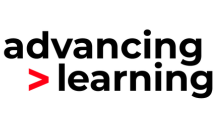The Max Maths and Science resources provide opportunities for parents to help their children at home. Students are supported with mathematical and scientific learning which includes the language of these subjects. The home learning journal is designed to enhance the learning in Max Science and Max Maths but it can be used as a stand-alone resource. It is important that students have studied the topic fully before engaging in the content of the journal. The use of the journal encourages students to consolidate their learning and to reflect on their understanding.
Teachers can set specific exercises in the journal for homework if it is used in conjunction with the Max Science or Max Maths scheme. The exercises used should be planned at the most appropriate point in the learning journey of each topic. Parents are encouraged to work alongside students to discuss and problem solve the exercises they are working on. It is important that parents are fully equipped to engage in the exercises with the students but they should take confidence in the fact that the exercises are set when the student has been taught the relevant information. This allows parents to actively engage and support with the consolidation and reflection of learning. Students might need support in completing the exercises correctly but not the teaching of the content. At the beginning of each journal section the content is introduced as a statement of what the student has been learning in school. Many of the exercises require input from parents or carers to discuss and encourage reflection from students on their learning. For example, in Max Maths grade 6 parents would be expected to use mathematical language such as place, value and digit using numbers up to 1 000 000. There are specific exercises where students are actively encouraged to find someone at home to talk to about the content that they have learned. They are asked to talk about how they have answered some of the questions and their ideas. They are also asked to seek help from someone at home to complete some aspects of the exercises.
Students then have an opportunity to check their maths in a short exercise. There is also a review activity where students match a decimal number with its correct name. Finally, students complete the journal by reflecting on their understanding by complete a traffic light exercise. The content of the topic is broken down into objectives and they allocate their confidence level for each one. The person they have worked with at home is then asked to sign off the journal by confirming that they have worked and shared their understanding with them. The journal exercises follow the same pattern in science for consistency.
Sharing students understanding with the people at home provides opportunities for students to express their knowledge in a remote and relaxed environment. It is the child’s chance to shine and show what they have learned. In order to do this the student must understand the content to a deeper level. This type of activity also requires the student to use appropriate vocabulary and language when discussing the exercises. By sharing their understanding and knowledge the student also has some kind of accountability. They are aware that at the end of every learning opportunity they will complete the journal with the people at home.
The people at home are better equipped to support children because they are aware of the topics and content that they should have learned. They might find everyday opportunities to practice skills and content. The awareness of what a student is learning in school can be enhanced through everyday events at home. This provides enhanced and valuable learning experiences that would normally be missed without the sharing of learning in this way.
Words by Debbie Roberts.



